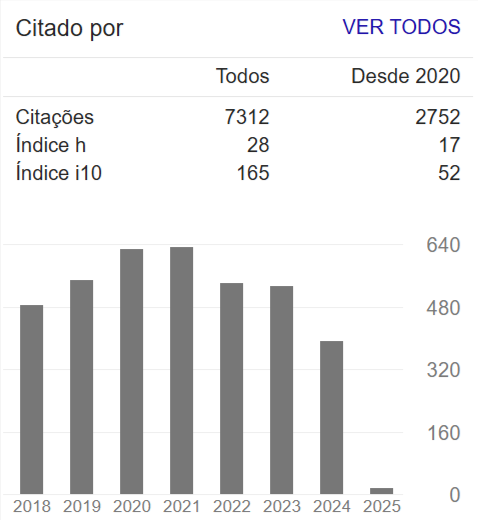Soil use and the quality of underground water: case study of aquifer Rio Branco, Acre, Brazil.
Abstract
The aquifers are distributed throughout the Amazonian territory, the groundwater is abundant and strategic resources. In the state of Acre, especially in the city of Rio Branco, there is the aquifer with the same name of the city. The respective aquifer is an important water reserve of the city, however, with the urban expansion and the different forms of use of the ground on the area of the subterranean sheet there are potential negative impacts. In this sense, the present article aims to evaluate the water quality of the Rio Branco aquifer in the Vila Acre and Cidade Nova neighborhoods, as well as the use of the soil in the respective neighborhoods. For this purpose, the water collection was used directly in the aquifer wells of the Cidade Nova and Vila Acre districts. Samples were analyzed in the laboratory taking into account the physical, chemical and biological characteristics of the water. The aquifers are important for cities, however many have high vulnerability and contamination becomes imminent. Evaluating these variables becomes relevant.

















